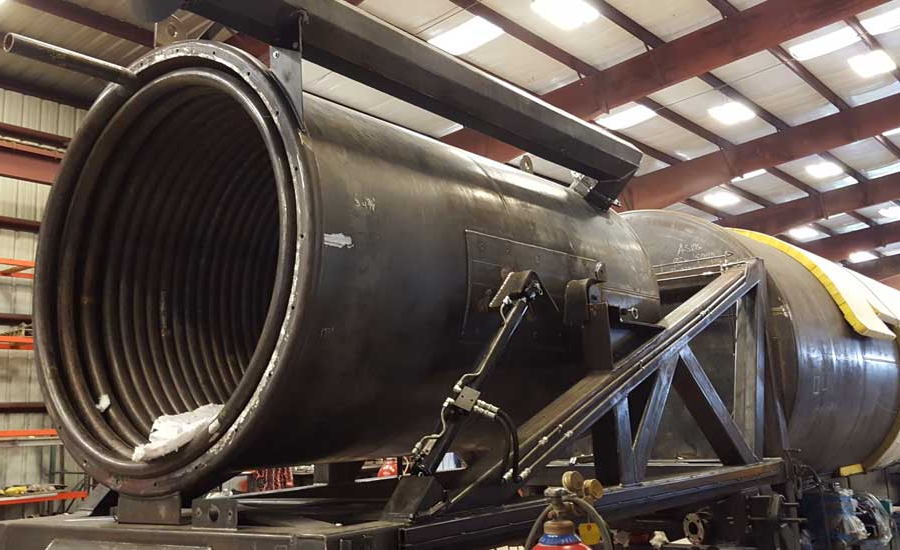In the realm of road construction and upkeep, the durability and quality of asphalt are paramount for maintaining long-lasting road surfaces. Among the cutting-edge solutions developed to enhance these properties are bitumen boosters. This article provides an in-depth exploration of bitumen boosters, focusing on their advantages, how they function, and their significant impact on asphalt performance. Specifically, we will discuss how these boosters address common issues like rutting and contribute to prolonging the life of asphalt layers.
Bitumen boosters represent a significant advancement in asphalt technology. By incorporating these additives, road construction professionals can significantly improve the resilience of asphalt mixtures. Bitumen boosters work by modifying the physical and chemical properties of bitumen, the primary binder in asphalt. This modification enhances the binder’s ability to resist deformation and wear, which is crucial for maintaining the integrity of road surfaces under heavy traffic conditions.
One of the primary benefits of using bitumen boosters is their ability to reduce rutting, a common problem where the road surface becomes permanently deformed due to the pressure of vehicle loads. By improving the viscosity and elasticity of the bitumen, these boosters help the asphalt withstand deformation and maintain a smoother surface over time.
Furthermore, bitumen boosters contribute to the extended lifespan of asphalt layers. They enhance the adhesive properties of the bitumen, ensuring better bonding between the asphalt and the aggregate materials. This improved adhesion helps prevent premature cracking and stripping, which can lead to more frequent maintenance and repairs.
What Is A Bitumen Booster?
Bitumen boosters are specialized additives designed to improve the properties of bitumen, the dark, sticky substance sourced from petroleum used as a binder in asphalt. Bitumen plays a vital role in binding aggregate materials such as sand, gravel, and crushed stone, creating a durable asphalt mixture. Despite its importance, standard bitumen can face issues like rutting, cracking, and aging over time.
Bitumen boosters help overcome these problems by altering the physical and chemical properties of the bitumen. This enhancement results in a higher-quality asphalt that better resists deformation and degradation. By improving the bitumen’s performance, these additives contribute to a more resilient and long-lasting road surface.
Uses For Bitumen Boosters
Applications of Bitumen Boosters in Road Construction
Bitumen boosters play a versatile role in the road construction industry, offering valuable enhancements across various applications. Understanding how these boosters are utilized helps in assessing their effectiveness for different types of projects:
a. Road Construction In the realm of road construction, bitumen boosters are integrated into asphalt formulations to significantly improve their performance and durability:
- High-Traffic Roads: For roads exposed to substantial traffic loads, bitumen boosters enhance resistance to rutting and deformation, ensuring the road maintains its integrity under heavy use.
- Highway Projects: For highways where a smooth and enduring surface is critical, bitumen boosters contribute to creating a superior-quality asphalt that meets durability and performance standards.
b. Pavement Maintenance Bitumen boosters also play a crucial role in pavement maintenance by addressing specific challenges and extending the lifespan of existing asphalt surfaces:
- Surface Treatments: These boosters can be applied in surface treatments and seal coats to refresh and upgrade aging pavements, helping them perform better and last longer.
- Repair Work: When used in repair operations, bitumen boosters enhance the quality and longevity of patching materials and overlays, improving the effectiveness of repair efforts.
c. Specialized Applications Bitumen boosters are beneficial in certain specialized scenarios:
- Cold Mix Asphalt: In cold mix asphalt, used for temporary fixes and low-traffic zones, boosters improve the mix’s performance, providing better short-term solutions.
- Warm Mix Asphalt: For warm mix asphalt, these boosters optimize the mix’s properties at lower temperatures, facilitating easier handling and application during construction.
In what Way Bitumen Boosters Work
How Bitumen Boosters Work: Mechanisms and Benefits
Gaining an understanding of how bitumen boosters function reveals their advantages and diverse applications. These additives enhance bitumen through several key mechanisms:
a. Chemical Enhancements Bitumen boosters often include chemical substances that modify the bitumen’s properties:
- Polymer Additives: Polymers such as styrene-butadiene-styrene (SBS) and ethylene-vinyl-acetate (EVA) are frequently used to boost the flexibility and elasticity of bitumen. These polymers enhance the material’s ability to resist cracking and deformation by increasing its flexibility.
- Plasticizers: These additives improve the workability of bitumen, making it easier to handle and apply during the construction phase by enhancing its flow properties.
b. Physical Improvements Bitumen boosters also enhance the physical attributes of asphalt:
- Rheological Properties: By optimizing rheological characteristics like flow behavior and resistance to deformation at various temperatures, bitumen boosters help minimize rutting and maintain the asphalt surface’s durability.
- Viscoelastic Properties: These boosters improve bitumen’s viscoelastic qualities, allowing it to recover from deformation and reducing permanent damage. This enhancement plays a significant role in extending the longevity of asphalt surfaces.
c. Compatibility and Integration Bitumen boosters are designed to blend seamlessly with existing bitumen and asphalt formulations. They are incorporated into the bitumen during the mixing process, ensuring an even distribution throughout the asphalt mixture.
Challenges In The Use Of Bitumen Boosters
While bitumen boosters provide notable enhancements to asphalt, several challenges must be addressed to maximize their effectiveness and benefits:
1. Compatibility Concerns
A primary issue with bitumen boosters is ensuring their compatibility with different types of bitumen and aggregates. Each bitumen variant has a distinct chemical makeup, and the performance of a booster can vary accordingly. Incompatibility between boosters and aggregates can compromise the asphalt mixture’s performance, leading to reduced binder adhesion, increased cracking, and overall decreased durability.
2. Environmental and Health Considerations
The production and use of bitumen boosters can raise environmental and health concerns. Many traditional boosters contain volatile organic compounds (VOCs) and other harmful substances that may contribute to air pollution and pose health risks. With stricter environmental regulations, there is a growing need for safer, more eco-friendly alternatives to minimize these risks.
3. Financial Impact
Despite their advantages, bitumen boosters come with a higher initial cost, which can be a concern for budget-sensitive projects. The expense of integrating these additives into asphalt mixtures may be a significant factor for many construction projects, particularly those with tight budgets. However, it is important to weigh these costs against the potential long-term benefits of improved asphalt performance and durability.
4. Mixing and Application Difficulties
Achieving uniform distribution of bitumen boosters in asphalt mixtures can be challenging. Inconsistent application may result in weak spots within the pavement, diminishing the booster’s overall effectiveness. Proper mixing techniques and thorough training for construction staff are essential to ensure even distribution and fully realize the benefits of the boosters.
5. Sensitivity to Weather Conditions
Bitumen and its boosters can be sensitive to extreme temperatures, which can affect the performance and durability of the asphalt. Very high or low temperatures may lead to issues such as premature aging or brittleness. It is crucial to select the appropriate type of booster based on the climate conditions of the project site to ensure optimal performance throughout varying weather scenarios.
6. Regulatory Compliance
The use of bitumen boosters is governed by various regulations that can differ across regions. Navigating these regulatory requirements can be complex for project managers and contractors. Ensuring adherence to local standards and guidelines for chemical additives in construction materials is essential to avoid legal and operational issues.
7. Knowledge and Expertise Gaps
There is often limited awareness and expertise regarding the effective use of bitumen boosters. This knowledge gap can result in suboptimal application and reduced benefits. Many construction professionals may not fully understand how to utilize bitumen boosters properly, which can impact the overall success of projects involving these additives.
Examples And Case Studies
Real-World Examples Demonstrating the Benefits of Bitumen Boosters
Examining practical applications and case studies highlights the effectiveness of bitumen boosters in enhancing asphalt performance:
a. Case Study 1: Urban Roads with Heavy Traffic In a bustling urban environment with significant traffic loads, bitumen boosters were employed to improve asphalt quality:
- Outcomes: The incorporation of bitumen boosters resulted in a notable decrease in rutting and surface deformation. This not only extended the life of the asphalt layer but also reduced maintenance expenses.
b. Case Study 2: Highway Development During a highway construction project, bitumen boosters were added to enhance the asphalt’s durability:
- Outcomes: The treated asphalt demonstrated superior resistance to cracking and deformation, leading to a smoother, more durable road surface that withstands heavy traffic conditions more effectively.
c. Case Study 3: Pavement Restoration In a project focused on rehabilitating existing pavements, bitumen boosters were used in surface treatments:
- Outcomes: The application of bitumen boosters improved the flexibility and resistance to aging of the pavement, resulting in enhanced overall performance and extended service life.
FAQs
Q. What are bitumen boosters?
Bitumen boosters are additives mixed with bitumen to enhance its properties. They improve the performance and longevity of asphalt by modifying its chemical and physical characteristics.
Q. How do bitumen boosters improve asphalt performance?
Bitumen boosters improve asphalt performance by increasing flexibility, reducing cracking, enhancing resistance to deformation, and extending the lifespan of the pavement. They achieve this through chemical modifications and physical enhancements.
Q. What are the common types of bitumen boosters?
Common types of bitumen boosters include polymer additives such as styrene-butadiene-styrene (SBS) and ethylene-vinyl-acetate (EVA), as well as plasticizers that improve the flow properties of bitumen.
Q. Are there any environmental concerns associated with bitumen boosters?
Yes, some bitumen boosters contain volatile organic compounds (VOCs) and other hazardous substances that can impact air quality and health. There is a push for safer, more sustainable alternatives to address these concerns.
Q. What are the cost implications of using bitumen boosters?
Bitumen boosters can increase the initial cost of asphalt mixtures. However, the long-term benefits, such as reduced maintenance and extended pavement lifespan, may outweigh these upfront costs.
Q. Can bitumen boosters be used in all types of asphalt applications?
Bitumen boosters can be used in various asphalt applications, including high-traffic roads, highways, and pavement maintenance. However, their effectiveness depends on proper compatibility with bitumen and aggregates.
Conclusion
Bitumen boosters represent a significant advancement in the field of road construction and maintenance. By enhancing the chemical and physical properties of bitumen, these additives address common issues such as rutting, cracking, and aging. The use of bitumen boosters has demonstrated substantial benefits in various applications, including high-traffic urban roads, highway construction, and pavement rehabilitation.
Despite their advantages, challenges such as compatibility issues, environmental and health concerns, and higher initial costs must be carefully managed. Successful application of bitumen boosters requires precise mixing and adherence to regulatory standards to fully realize their potential. As technology and materials continue to evolve, ongoing research and development are likely to yield even more effective and sustainable solutions for improving asphalt performance.




